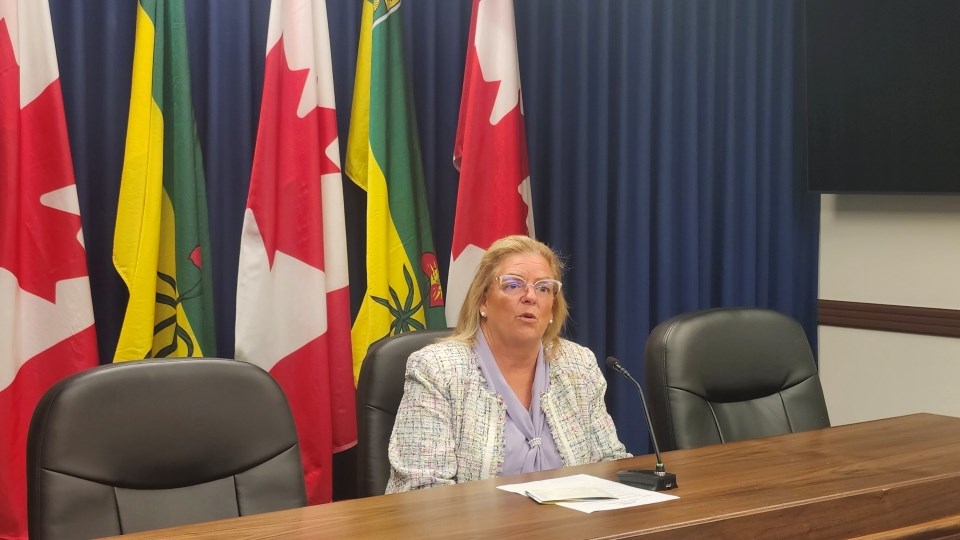SASKATOON — Estevan-Big Muddy MLA Lori Carr believes it is an opportune time for Saskatchewan to host the 79th Midwestern Legislative Conference, as the trade deadline set by United States President Trump draws near.
Trump’s trade deadline with Canada is set on Friday, Aug. 1, as he once again threatened that Washington would impose a 35 per cent tariff on Canadian goods entering the US. There is already a blanket 25 per cent tariff on some Canadian products that CUSMA does not cover.
Carr, who chairs this year’s annual meeting of legislators from the province and 11 US Midwest states, said the four-day conference will ensure the relationships the province has with their southern neighbours.
“There is no better time to be hosting this conference than today. To ensure that the relationships that we're building are strong, that we still have that valued partner and that they will be there for years to come,” said Carr during a media event on Tuesday, July 29.
Speaking at the Saskatchewan Cabinet Office in Saskatoon, she said that the final day of the conference on Wednesday, July 30, will focus more on roundtable discussions on the trade corridors between the regular and affiliate members.
“When we talk about trade corridors, is that a highway, is that a pipeline, or air transportation? How do we get our goods to market? Some of those go north and south, and yeah, that's what we're going to talk about tomorrow [Wednesday],” added Carr.
The MLC comprises the Canadian province of Saskatchewan and the US states of Illinois, Indiana, Iowa, Kansas, Michigan, Minnesota, Nebraska, Ohio, South Dakota, and Wisconsin. The Canadian provinces of Alberta, Manitoba, and Ontario are affiliate members.
One of the major products being traded by Saskatchewan is potash, an essential source used by US Midwest farmers like Iowa, Kansas, Nebraska, North Dakota, and Wisconsin to grow their produce, particularly corn and soybeans.
Carr said the threats of higher tariffs for Canadian goods, like potash, would increase the cost of agricultural products in the US since the majority of the potash used for fertilizer by Midwest farmers comes from Saskatchewan.
“If something happens, everything's just going to become more expensive. The majority of the potash they put in the ground comes from Saskatchewan. They depend on us. They know that we're a reliable and a safe vendor for them, and they want that to continue,” she said.
She added that North American Energy Security was also discussed, with 5.9 million households south of the border getting their power from Canada, which shows how interconnected the US’s power grid is with the country.
“Everybody wants reliable, sustainable, and affordable energy. For us to work together on that and what that might look like as we roll out into the future, we are so interconnected, and it only makes sense that we continue to work on that together,” Carr said.




